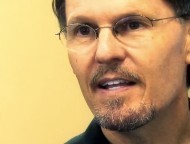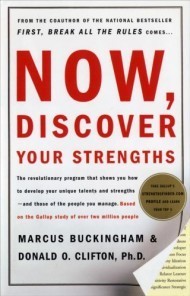Justin Taylor's Blog, page 306
August 1, 2011
The Point of God's Transcendence
Guest Post by Dane Ortlund
Derek Kidner:
The wrong inference from God's transcendence is that he is too great to care; the right one is that he is too great to fail.
–quoted in Alec Motyer, The Prophecy of Isaiah: An Introduction and Commentary (IVP, 1993), 307
HT: Joshua Harris
Martin Marty on Religion and the Norway Shooting
Guest Post by Robert Sagers
Church historian Martin E. Marty today comments on Anders Behring Breivik's shooting attack in Norway, and the religious implications of the way some people responded to it.
Marty, a Lutheran, writes:
Q: What do the following have in common? Anders Behring Breivik, killer of scores of innocents in Norway; assassins Lee Harvey Oswald (JFK) and Sirhan Sirhan (RFK); serial killers: Dennis Rader (Kansas, murdered 10); Charles Starkweather (Nebraska, 11); Jeffrey Dahmer (Wisconsin, 17); and Dylan Kiebold (Columbine, CO, 13).
Answer: they were all Lutheran Christians.
The Racket of Unforgetful gods
Guest post by Jared Wilson
Janet Reitman has written a provocative book detailing the inner workings of the very secretive world of Scientology. Having read up a bit on L. Ron Hubbard's science fiction-slash-religion creation before, I was familiar with the charge that in the early "auditing" process, budding Scientologists reveal their deepest darkest secrets to the church, who in turn may eventually use those to emotionally blackmail would-be deserters and dissenters. In an interview reprinted by Reuters, Reitman elaborates:
Q: There are all these rumors that celebrities like Cruise remain Scientologists because the church knows all their secrets and they fear blackmail. Any truth to that?
A: I didn't go into that too much in my book, but it seems obvious. They have the goods on everybody. A great part of the Scientology experience is the confession that happens in the auditing experience. You are constantly being asked to write up your transgressions, maybe even your unspoken transgressions. They know everything about you. They would know everything about Cruise in the same way that they would know everything about me if I were a member.
What a racket.
And what a wonder, then, that Christians are forgiven and saved by a God whose filing cabinet of records against us is empty. Or, rather, is filled with the obedience of Jesus.
I, I am he
who blots out your transgressions for my own sake,
and I will not remember your sins. (Isaiah 43:25)
A Prayer for Preaching the Gospel to Ourselves
Guest Post by Scotty Smith
A Prayer for Preaching the Gospel to Ourselves
I am eager to preach the gospel to you also who are in Rome. For I am not ashamed of the gospel, for it is the power of God for salvation to everyone who believes, to the Jew first and also to the Greek. For in it the righteousness of God is revealed from faith for faith, as it is written, "The righteous shall live by faith." Rom. 1:15–17
Most gracious Lord Jesus, even as Paul was eager to preach the gospel to believers in Rome, so I'm eager to preach it to my own heart today. There was a time when I thought the gospel was only for nonbelievers—simply the doorway for beginning a relationship with you. I now realize we believers need the gospel just as much as nonbelievers. From beginning to end, our redemption is entirely dependent upon the grace, truth, and power of the gospel. Indeed, there's nothing more than the gospel, there is just more of the gospel.
Thank you for rescuing us from the notion that salvation is primarily death preparation. It's about coming to life and it concerns the whole of life. It's about becoming like you, Jesus—one Day being as beautiful and loving as you. It's about deliverance from our little stories of personal peace and affluence, that we might serve in your big story of pan-national and cosmic redemption. What a privilege and honor!
Only the resources of the gospel are sufficient for such a task, for we're not just separated from God by a great distance, we're thoroughly diseased by our great depravity. We need a big gospel for our great need, and that's exactly what you have in you.
Jesus, we worship and adore you for accomplishing everything necessary to completely save us. You came into the world as God's promised Messiah, fulfilling the hope of Israel's prophets. As the second Adam, you lived a life of perfect obedience as our substitute—fulfilling every demand of God's law for us. As the Lamb of God, you died upon the cross for us—taking the punishment we deserve. You have exhausted God's righteous and holy anger, once and for all. Hallelujah!
We no longer fear death and facing judgment; and we no longer dread life, and carrying the burden of our guilt and shame. Your painful cry, "It is finished", is now our celebrative song.
Through faith in you and this good news, all of our sins have been forgiven—past, present and future; sins of thought, word and deed. God has already declared us righteous in his sight because he has robed us in your perfect righteousness. We've been adopted as his beloved children and are now indwelt by his Holy Spirit. God cannot love us more than he does today, and he'll never love us less. Amazing! In fact, because of your work for us, Jesus, God now loves us just as much as he loves you, for he has hidden our lives in yours. Astonishing! We believe, help our unbelief.
As this gospel is bearing fruit throughout history and the world, may it continue to do so in our hearts and lives, even this very day. So very Amen we pray, in Jesus' priceless and peerless name.
July 30, 2011
(More on) John R. W. Stott (1921-2011)
Guest Post by Robert Sagers
 Evangelical leader John R. W. Stott passed away three days ago. A number of Christian leaders and others have since honored and remembered Dr. Stott (links below).
Evangelical leader John R. W. Stott passed away three days ago. A number of Christian leaders and others have since honored and remembered Dr. Stott (links below).
Perhaps you could take a moment to thank God for his work in and through Dr. Stott—and pray that God would be kind to raise up more like him for the gospel, for Christ.
—Langham Partnership International
—The Telegraph (HT)
—Greg Thornbury, Mark Coppenger, Ben Mitchell, Peter Riddell, Michael McClenahan, Charles Marnham (HT)
—Nathan Finn (HT via)
—Assorted Tweets Collected by Tim Challies (HT via)
—Tim Chester (HT)
—Justin Taylor (who also pointed me to a few of these links)
—And 731 posts (and counting) at the John R. W. Stott "Remembrance Book"
July 29, 2011
Introducing the Guest Bloggers
As I take a break from blogging next week, I want to introduce four brothers who will be filling in for me.
 Dane Ortlund serves as Senior Editor in the Bible Division at Crossway Books. His PhD is in New Testament studies from Wheaton College Graduate School.
Dane Ortlund serves as Senior Editor in the Bible Division at Crossway Books. His PhD is in New Testament studies from Wheaton College Graduate School.Dane is the author of A New Inner Relish: Christian Motivation in the Thought of Jonathan Edwards and the forthcoming Defiant Grace: The Surprising Message and Mission of Jesus.
Dane is married to his college sweetheart, Stacey, and they have two boys.
Dane blogs at Strawberry-Rhubarb Theology.
 Jared Wilson is the pastor of Middletown Springs Community Church in Middletown Springs, Vermont.
Jared Wilson is the pastor of Middletown Springs Community Church in Middletown Springs, Vermont.He is the author of the book Your Jesus Is Too Safe and the curriculum Abide.
His next book, Gospel Wakefulness, will be published by Crossway in October.
Jared and his wife Becky have two girls.
Jared blogs at The Gospel-Driven Church and can be followed on Twitter.
 Scotty Smith is the founding pastor of Christ Community Church in Franklin, Tennessee and a council member of The Gospel Coalition.
Scotty Smith is the founding pastor of Christ Community Church in Franklin, Tennessee and a council member of The Gospel Coalition.He also serves as adjunct professor at Covenant Theological Seminary, and teaches at Reformed Theological Seminary in Orlando.
Scotty has written five books:
Unveiled Hope (with Michael Card)
Speechless (with Steven Curtis Chapman)
Objects of His Affection
The Reign of Grace
Restoring Broken Things (with Steven Curtis Chapman)
On September 1 Baker will publish his next book, Everyday Prayers: 365 Days to a Gospel-Centered Faith.
Scotty and Darlene, his wife of 35 years, have two adult married children.
His gospel-centered prayers are blogged daily at Heavenward, hosted by TGC.
 Robert E. Sagers is a PhD student in systematic theology at the Southern Baptist Theological Seminary in Louisville, Kentucky, where he serves as Special Assistant to the Senior Vice President for Academic Administration (Russell Moore).
Robert E. Sagers is a PhD student in systematic theology at the Southern Baptist Theological Seminary in Louisville, Kentucky, where he serves as Special Assistant to the Senior Vice President for Academic Administration (Russell Moore).
Originally from West Linn, Oregon, Robert is an adjunct instructor at Boyce College, and co-teaches a Bible fellowship class at Highview Baptist Church in Louisville.
Robert contributes to the Evangel blog and can be followed on Twitter.
Talking about Technology
I enjoyed sitting down recently with Dustin Rouse, pastor of worship ministries at Bethel Church in Crown Point, IN, to think through some basic issues about using technology in a redemptive way.
July 28, 2011
"Sin" in 1 John
The following is not an attempt to track and categorize all of the concepts of "sin" in the book of 1 John. To do that one would need to look at walking in darkness, loving the world, not keeping commandments, not practicing righteousness, idolatry, etc. Rather, I simply want to highlight some of the various ways that John instructs us to think about what he explicitly calls "sin" (ἁμαρτ–).
Why is John writing this letter?
My little children, I am writing these things to you so that you may not sin (2:1).
What is sin?
Everyone who makes a practice of sinning also practices lawlessness; sin is lawlessness (3:4). All wrongdoing is sin (3:17a).
How do we escape God's wrath for our sin?
He is the propitiation for our sins, and not for ours only but also for the sins of the whole world (2:2). In this is love, not that we have loved God but that he loved us and sent his Son to be the propitiation for our sins (2:10).
What does Jesus' blood do for our sin?
But if we walk in the light, as he is in the light, we have fellowship with one another, and the blood of Jesus his Son cleanses us from all sin. (1:7)
What if we do sin?
But if anyone does sin, we have an advocate with the Father, Jesus Christ the righteous. (2:1)
What if we confess our sins?
If we confess our sins, he is faithful and just to forgive us our sins and to cleanse us from all unrighteousness (1:9).
Why were our sins forgiven?
. . . your sins are forgiven for his name's sake (2:12).
Why did Jesus come and what was his personal relationship to sin?
You know that he appeared to take away sins, and in him there is no sin (3:5).
What if we say we have no sin or have not sinned?
If we say we have no sin, we deceive ourselves, and the truth is not in us (1:8). If we say we have not sinned, we make him a liar, and his word is not in us (1:10).
What should we do when a brother commits a sin not leading to death?
There is sin that does not lead to death (5:17b). If anyone sees his brother committing a sin not leading to death, he shall ask, and God will give him life—to those who commit sins that do not lead to death (5:16a).
What about a sin that leads to death?
There is sin that leads to death; I do not say that one should pray for that (5:16b).
What is the relationship between abiding in Christ and unrepentant sin?
No one who abides in him keeps on sinning; no one who keeps on sinning has either seen him or known him. (3:6)
What is the relationship between Satan and unrepentant sin?
Whoever makes a practice of sinning is of the devil, for the devil has been sinning from the beginning. The reason the Son of God appeared was to destroy the works of the devil (3:8).
What is the relationship between regeneration and unrepentant sin?
No one born of God makes a practice of sinning, for God's seed abides in him, and he cannot keep on sinning because he has been born of God (3:9). We know that everyone who has been born of God does not keep on sinning, but he who was born of God protects him, and the evil one does not touch him (5:18).
Raising the Debt Ceiling: Explained in Less Than 1 Minute on a White Board
Not to get overtly political here, but here's a quick explanation of why the US has to raise its debt ceiling:
As of this hour, the Democrats are operating as the Party of No, and the Republicans blocking legislation (as Douglas Holtz-Eakin, the guy in the video, explains) are in "the Coalition of the Willfully Ignorant (who claim you don't need a debt-ceiling increase or that markets won't care and there will be no fallout) and the Coalition of It's Someone Else's Problem (because I just want to have an issue and campaign). Result: They suffer a political loss and America loses."
"Some trust in chariots and some in horses, but we trust in the name of the LORD our God" (Ps. 20:7). It's wrong to trust in the success of chariots and horses (and legislation and political parties). But it's still okay to be concerned when such things break down!
Now, Use Your Gifts!
In books like Now, Discover Your Strengths, Marcus Buckingham makes the very helpful point that we will be most effective when we focus on our strengths rather than on shoring up our weaknesses.
It's not that our weaknesses are irrelevant. We need to be aware of them and manage around them. But we will be most effective if we craft our roles (and lives!) so that we are operating in our strengths most of the time.
This is very good advice and makes a lot of sense. And Buckingham makes an excellent case for it in his books.
But is it biblical?
Now, in one sense this question could be a red herring. I don't need to ask, for example, whether it is biblical to use a Mac rather than a PC. Biblically speaking, either is acceptable (though practically speaking, many people may have strong opinions!). As Christians, there are many areas where the Bible doesn't give any specific command and we are free to choose the approach we want to take, as long as it is in alignment with an overall biblical worldview.
But when it comes to Buckingham's point on strengths, I think there is a biblical foundation which is helpful to see.
You can read the whole thing here.
Justin Taylor's Blog
- Justin Taylor's profile
- 44 followers




